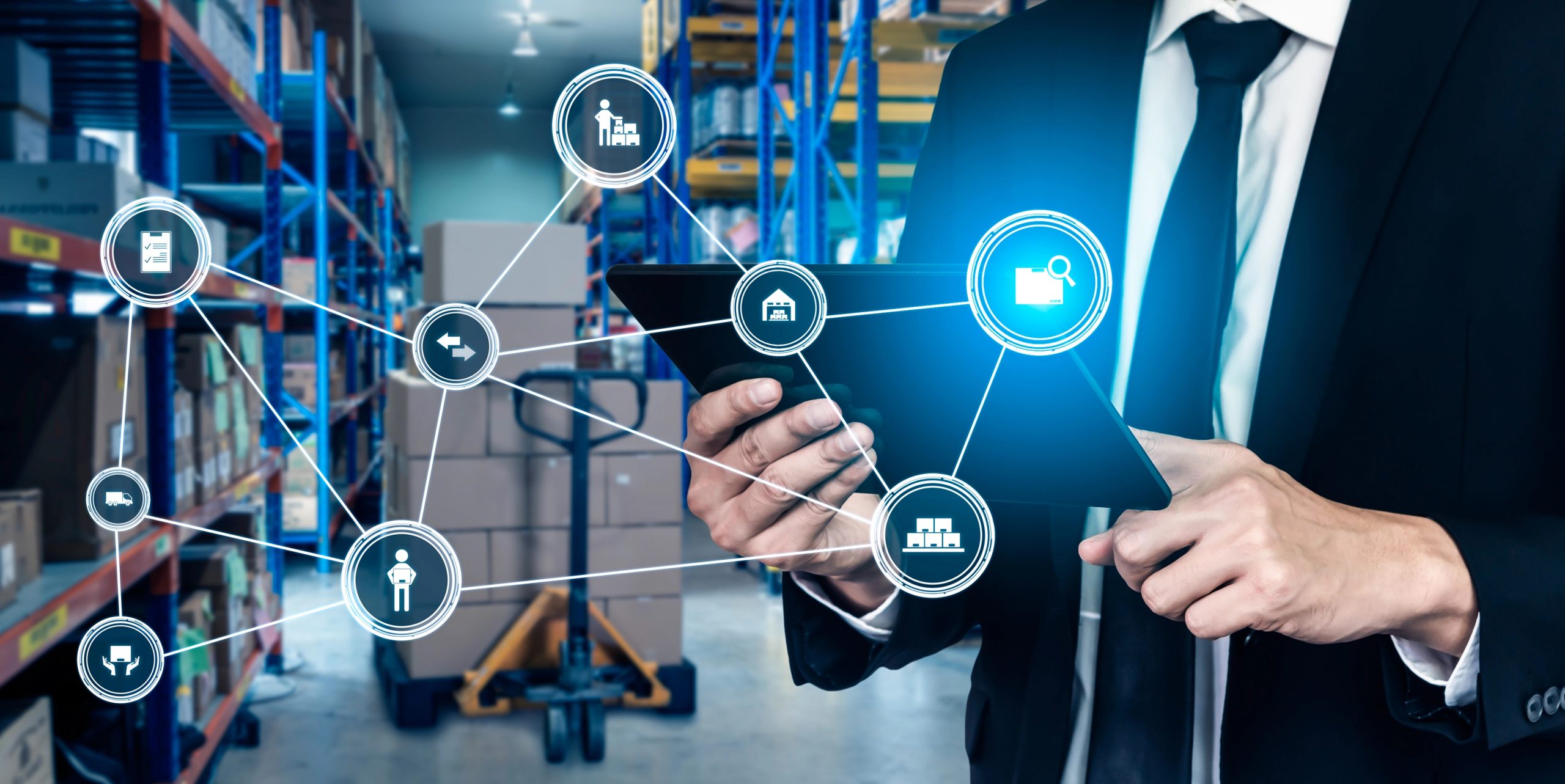The Future of TMS: Integrating AI and Machine Learning for Smarter Transportation Management

Transportation management systems (TMS) play a crucial role in modern logistics, enabling companies to efficiently plan, execute, and optimize their supply chain operations. However, as the complexity of global trade continues to grow, traditional TMS solutions are facing challenges in keeping up with the pace of change. That’s where the power of artificial intelligence (AI) and machine learning comes into play. By harnessing the capabilities of AI and machine learning, companies can unlock a new era of smarter transportation management.
Understanding the Current State of Transportation Management Systems (TMS)
TMS is a software solution that enables companies to effectively manage their transportation operations. It allows businesses to streamline processes, gain visibility into their supply chain, optimize route planning, track shipments in real-time, and manage transportation costs. TMS serves as a centralized hub for all transportation-related activities, providing a holistic view of the entire logistics network.
The Role of TMS in Modern Logistics
In today’s fast-paced business environment, reliable and efficient transportation is crucial for companies to stay competitive. TMS plays a vital role in ensuring smooth operations across the supply chain, from procurement to final delivery. It helps businesses manage their inventory, reduce delivery lead times, and optimize resource allocation. With the ability to track shipments, monitor driver performance, and analyze transportation data, TMS empowers companies with actionable insights for continuous improvement.
Challenges in Current TMS Operations
Despite the significant benefits TMS provides, there are several challenges in its current operations. Traditional TMS solutions often rely on manual data entry, resulting in time-consuming and error-prone processes. Limited visibility into supply chain disruptions, such as weather conditions or traffic congestion, can lead to delays and increased costs. Additionally, the sheer volume of data generated by modern logistics systems can be overwhelming for human analysis, inhibiting effective decision-making.
One of the challenges that companies face with TMS is the integration of different systems and platforms. In today’s interconnected world, businesses often use multiple software applications to manage various aspects of their operations. However, integrating these systems with TMS can be complex and time-consuming. It requires careful planning, coordination, and technical expertise to ensure seamless data flow and communication between different platforms.
Another challenge in current TMS operations is the need for constant adaptation to changing regulations and industry standards. The transportation industry is subject to various regulations, such as safety standards, environmental regulations, and customs requirements. TMS must be able to adapt to these changes and ensure compliance to avoid penalties and disruptions in operations. This requires regular updates and enhancements to the software, as well as continuous monitoring of regulatory changes.
Furthermore, the increasing complexity of global supply chains poses additional challenges for TMS operations. With companies sourcing materials and products from multiple countries, managing international transportation becomes more intricate. TMS must be able to handle different currencies, languages, and customs procedures, while also considering factors such as trade agreements, tariffs, and geopolitical risks. This complexity adds another layer of difficulty in effectively managing transportation operations.
The Rise of Artificial Intelligence and Machine Learning
Artificial intelligence and machine learning have revolutionized various industries by enabling computers to learn from data and make intelligent decisions. AI refers to the simulation of human intelligence in machines, allowing them to perceive, reason, and learn from experiences. Machine learning is a subset of AI, focusing on the development of algorithms that enable systems to automatically learn and improve from data without being explicitly programmed.
Defining AI and Machine Learning
AI can be classified into two main categories: narrow or weak AI and general or strong AI. Narrow AI focuses on specific tasks, such as speech recognition, image classification, or natural language processing. On the other hand, general AI aims to exhibit human-level intelligence and perform any intellectual task that a human can do.
Machine learning, on the other hand, is a key component of AI and focuses on training algorithms to learn from data and make predictions or take actions. Supervised learning involves training models with labeled data to predict outcomes, while unsupervised learning involves finding patterns or structures in data without explicit labels. Reinforcement learning, another type of machine learning, uses a reward-based system to guide the learning process through trial and error.
How AI and Machine Learning are Changing Industries
AI and machine learning are transforming industries across the board. From healthcare to finance to retail, companies are leveraging these technologies to automate processes, enhance decision-making, and deliver more personalized experiences to customers. In logistics and transportation, AI and machine learning have the potential to revolutionize the way companies manage their supply chains and optimize their transportation operations.
In the healthcare industry, AI and machine learning are being used to improve diagnostics and treatment plans. By analyzing large amounts of medical data, AI algorithms can identify patterns and make predictions about patient outcomes. This can lead to more accurate diagnoses, personalized treatment plans, and improved patient care. Additionally, AI-powered robots are being developed to assist with surgeries, allowing for more precise and efficient procedures.
In the finance sector, AI and machine learning algorithms are being used to detect fraud, predict market trends, and automate trading. By analyzing vast amounts of financial data in real-time, these algorithms can identify suspicious activities and patterns that humans may miss. This not only helps prevent fraud but also allows for more informed investment decisions, leading to better returns for investors.
In the retail industry, AI and machine learning are being used to enhance the customer experience. Personalized recommendations based on past purchases and browsing behavior can help customers discover new products they may be interested in. AI-powered chatbots are also being used to provide instant customer support, improving response times and overall customer satisfaction.
Furthermore, in the field of logistics and transportation, AI and machine learning are revolutionizing supply chain management and optimizing transportation operations. By analyzing historical data and real-time information, AI algorithms can predict demand, optimize routes, and reduce delivery times. This not only improves efficiency but also reduces costs and environmental impact.
Overall, the rise of artificial intelligence and machine learning is reshaping industries in profound ways. As these technologies continue to advance, we can expect even more innovative applications and transformative changes in various sectors. The potential for AI and machine learning to improve decision-making, automate processes, and deliver personalized experiences is truly remarkable.
The Intersection of AI, Machine Learning, and TMS
The integration of AI and machine learning into TMS holds immense potential for enhancing transportation management. By leveraging these technologies, companies can unlock valuable insights from vast amounts of data, automate routine tasks, improve forecasting accuracy, and optimize transportation routes and resource allocation.
Potential Benefits of AI and Machine Learning in TMS
The benefits of integrating AI and machine learning into TMS are numerous. Real-time data analysis enables companies to make proactive decisions and quickly respond to changes in demand or disruptions in the supply chain. Predictive analytics can reduce transportation costs by optimizing routes, consolidating shipments, and identifying alternative modes of transportation. Moreover, AI and machine learning algorithms can detect patterns and anomalies in data that might be missed by human operators, improving the accuracy of demand forecasting and reducing inventory holding costs.
Predicted Changes in TMS Operations due to AI Integration
With AI integration, TMS operations are expected to become more autonomous and efficient. Machines can learn from historical data and make data-driven recommendations for route optimization, carrier selection, and scheduling. AI algorithms can also automatically identify and resolve service disruptions, ensuring minimal impact on supply chain operations. Furthermore, AI-powered predictive maintenance can help companies proactively address equipment failures and reduce downtime.
Preparing for an AI-Driven TMS Future
As the integration of AI and machine learning into TMS becomes more prevalent, companies must take necessary steps to prepare for this technological shift.
Necessary Steps for Successful AI Integration in TMS
Successful AI integration in TMS requires a strategic approach. Companies need to establish a strong data foundation by capturing accurate and comprehensive transportation data. Investing in robust data management infrastructure and systems is crucial to ensure reliable and real-time access to data. Additionally, organizations should develop a data governance framework to maintain data quality, privacy, and security.
Furthermore, companies should foster a culture of innovation and continuous learning to embrace and capitalize on AI-driven TMS. Training employees on data analytics, AI, and machine learning principles can help them leverage these technologies to make better-informed decisions. Collaborating with technology partners and industry experts can also provide valuable insights and guidance throughout the AI integration process.
Potential Risks and Mitigation Strategies in AI-Driven TMS
While the benefits of AI in TMS are significant, it’s important to acknowledge and address potential risks. One major concern is the reliance on technology and the potential for system failures or cyberattacks. To mitigate these risks, companies should implement robust cybersecurity measures, regularly update software and hardware, and establish backup systems. Additionally, it is crucial to have human oversight and intervention to ensure the ethical use of AI algorithms and prevent biases in decision-making processes.
The Long-Term Impact of AI and Machine Learning on TMS
The integration of AI and machine learning in TMS is not just a short-term trend but a transformative shift that will reshape the transportation management landscape in the long run.
Predictions for the Future of TMS
In the future, AI-driven TMS is expected to become more intelligent and adaptive. Cognitive computing capabilities will enable TMS to learn from past experiences, predict future market trends, and adapt to changing business dynamics. TMS will evolve into a strategic asset guiding companies to make data-driven decisions that optimize cost-efficiency, sustainability, and customer service.
The Role of Continuous Learning and Adaptation in AI-Driven TMS
Continuous learning and adaptation will be critical for AI-driven TMS to keep up with the ever-changing logistics landscape. Innovations in machine learning algorithms, such as deep learning and reinforcement learning, will enable TMS to improve its performance over time and handle more complex transportation challenges. Moreover, AI will enhance collaboration between stakeholders by providing a shared platform for real-time information exchange and a deeper understanding of the end-to-end supply chain.
As we look ahead, the integration of AI and machine learning into TMS holds immense potential to revolutionize transportation management. By unlocking valuable insights, automating processes, and optimizing operations, AI-driven TMS will enable companies to navigate the complexities of modern logistics with greater efficiency and agility. Embracing this technology-driven future will empower businesses to stay competitive and deliver smarter transportation management solutions for the dynamic needs of the global supply chain.

